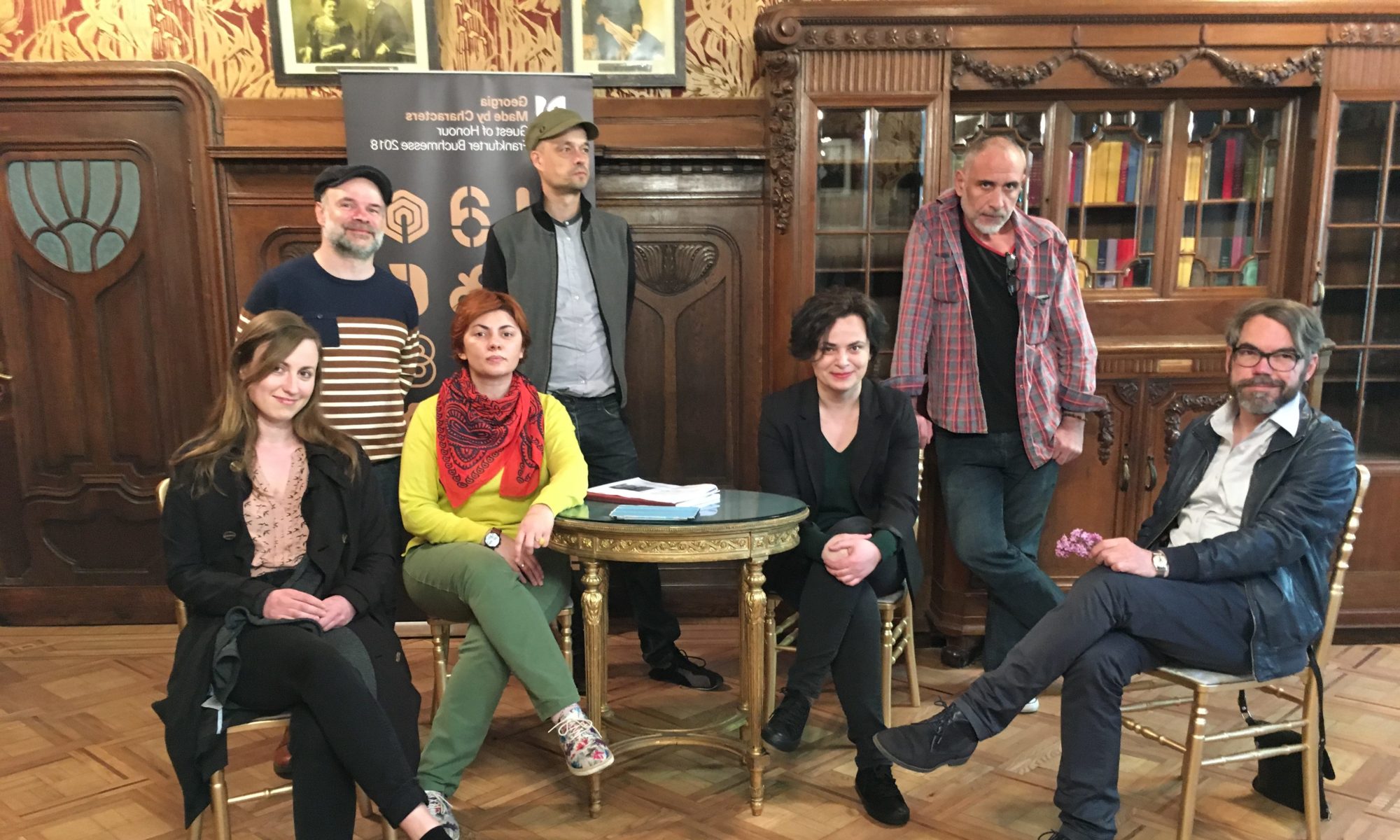Zu guter Letzt geht unser 10 Fragen Interview heute an: Tornike Chelidze

1. Which impact has Tbilisi on your own work?
Tbilisi is the city where I grew up and my very first memories are connected to it. Here I remember the war and the dances till the break of dawn in order to forget about it. Streets, friends, nights, dawns, the sound of the train coming from the station, stuff. To me Tbilisi is made up with all these things and has always had a great influence on my activities.
2. What do you like about Tbilisi? What is annoying you?
What I like most about Tbilisi is my personal attitude to it. Places, humans, scent and sound. However due to uncontrolled urbanization, all of my bonds with this city mentioned above are gradually disappearing.
3. How is your experience with the Literature Scene in Tbilisi?
Throughout the years I have been holding and promoting literary events. Among them was the annual performance named “Dghenaklulta“which was held on February 27.
4. On which project are you working right now?
Currently I am working on the second book of my poems.
5. How do you bring yourself in a mood for your writing? Which capabilities, which writing-environment and atmosphere do you need?
In every place it is possible to think about what to write down. More precisely, they come to your mind voluntarily, you just got to have something with you to note things down, a piece of paper, a mobile phone or a computer. At a particular point when you start writing, the most powerful thing is the surrounding peacefulness and tranquility not to keep you distracted.
6. How do you develop a literature text?
After writing a text I go back to it several times. I write consecutively, copying every detail to the piece of paper, then I start editing, removing, adding or changing things at all.
7. How much time do you spend with your writing per week? Are you satisfied with that time?
I rarely manage my time to write something continuously during a particularly long period of time. There are some periods where I dedicate most of my time to writing and there are also periods where I try to detach from the creative process. That can certainly make one feel both positively or negatively excited.
8. On which current social topics are you interested right now? And do there have impact on your writing?
The main topic I am currently interested in, is the state of people living in post-Soviet cities and their attempts to forget many things, even by remembering things that did not happen at all. Consequently, the less relevant concrete social topics are less likely to be described by me.
9. How did you become a writer?
Am I a writer? I often avoid this status as it rests on some responsibilities, thus I delay the moment of becoming a writer for the future.
10. How do you use the internet and social media platforms for your writing and as a place for presentation?
Social network is what I use the most. Several years ago I posted my poems on literary portals, now I rather prefer to publish new texts in printed literary journals.











